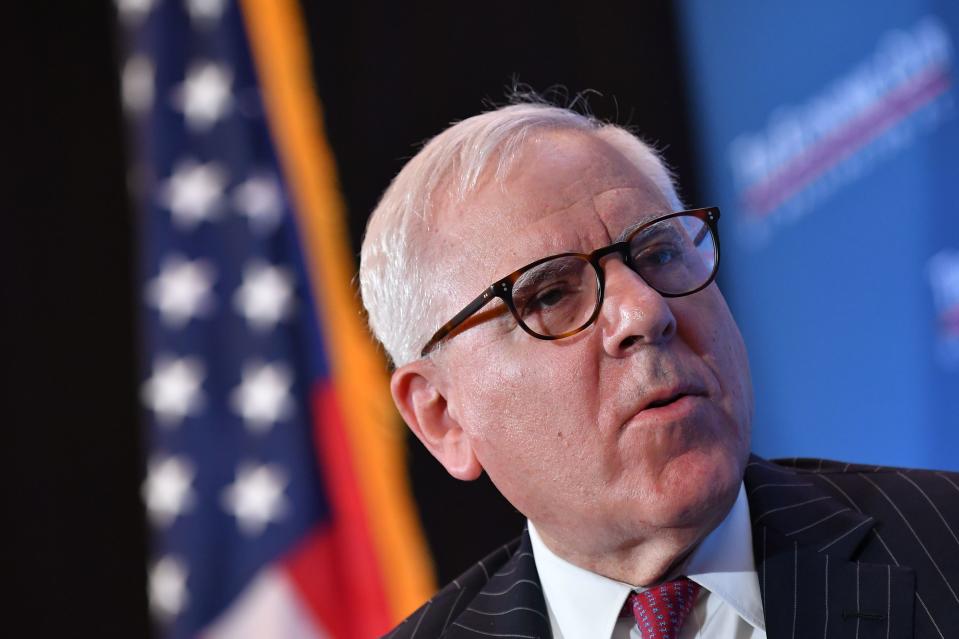Tradeoff between reopening and worsening coronavirus crisis 'a big problem': Billionaire investor David Rubenstein
The tradeoff between reopening the country and exacerbating the coronavirus outbreak is “the big problem we have right now in the economy,” says David Rubenstein, a billionaire investor who co-founded the private equity giant Carlyle Group.
Speaking to Yahoo Finance on Tuesday, he predicted that everyday Americans will grow accustomed to heightened levels of sickness and death from the disease as the economy continues to reopen.
“It's going to have a lot of health consequences that we're going to live with and just accept as normal,” he says. “I think people are going to go back to work and tolerate 1,000 people dying a day.”
The U.S. surpassed 75,000 new cases of coronavirus in single day for the first time on Thursday, as some governors pulled back reopening plans but Georgia Gov. Brian Kemp sued to prevent Atlanta from requiring residents to wear masks.
On Monday, President Donald Trump tweeted that the economy was “coming back fast” amid repeated calls for the country’s public schools to reopen.
Rubenstein described the potential tolerance in the U.S. of widespread illness and death from the disease as a “banality of death” in reference to the controversial concept “banality of evil” put forth in 1963 by journalist and political philosopher Hannah Arendt to describe the routine acceptance of mass murder among Nazis during the Holocaust.
“She used the phrase ‘banality of evil,’ which is to say that for the Nazis who were working on this, evil was so common that it just became commonly accepted, and it became almost something not to even talk about,” Rubenstein says.
“Here, we are now on the verge of having banality of death, in the sense that we're seeing so much death that it's almost acceptable to have a certain level of death,” he adds.
As of Friday, 138,840 people in the U.S. have died from the coronavirus, according to Johns Hopkins University.
“We had 3,000 killed in the World Trade Center. We had about 58,000 killed in Vietnam, about 5,000 in Iraq, 3,000 or so in Afghanistan,” Rubenstein says. “These are staggering numbers.”
Rubenstein made the remarks in an episode of Yahoo Finance’s “Influencers with Andy Serwer,” a weekly interview series with leaders in business, politics, and entertainment.
Before he rose to prominence in finance, Rubenstein served as an adviser to President Jimmy Carter at just 27 years old. In 1987, he co-founded a $5 million firm called Carlyle Group that now manages more than $200 billion in assets and runs offices on six continents.
He has an estimated net worth of $3.4 billion, according to Forbes.

“You have two ships passing in the night,” Rubenstein says. “While there's a desire to reopen, we also see the consequences of reopening.”
“I suspect we're just going to be tolerating more deaths than we normally would,” he says.
Read more:
Jump into stock market expecting rise 'a fool's errand': Billionaire investor David Rubenstein
Michael Dell: ‘Not enough’ progress on diversity in the tech industry
‘We may need to quarantine our books' when libraries reopen, New York Public Library CEO says
Read the latest financial and business news from Yahoo Finance

 Yahoo Finance
Yahoo Finance 